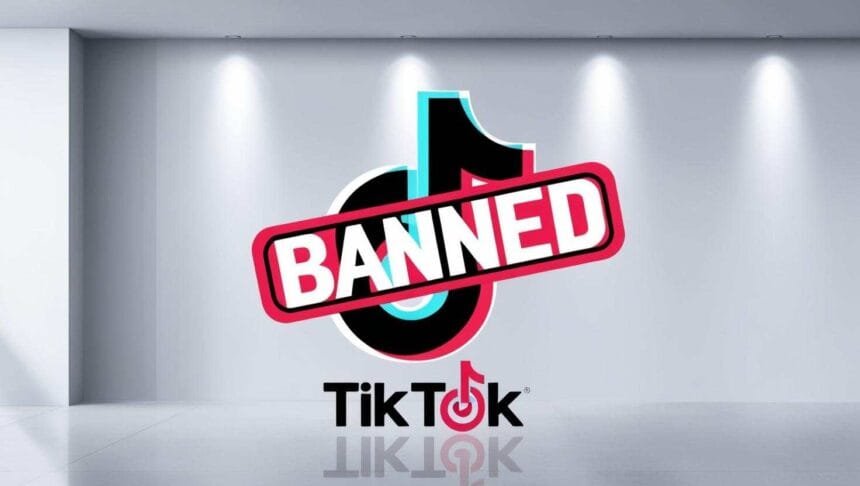The Supreme Court is currently deliberating on a case that could lead to a nationwide ban on TikTok unless its Chinese parent company, ByteDance, divests its ownership.
This pivotal case has ignited debates over national security, free speech, and the broader implications for U.S.-China relations.
As oral arguments unfold, the ruling could reshape the landscape of digital platforms and their governance in the U.S.
Backdrop of the Controversy
TikTok, a platform with over 170 million users in the U.S., has faced scrutiny for years due to its ties to ByteDance, a Beijing-based company.
U.S. lawmakers and intelligence agencies have expressed concerns that the Chinese government could exploit TikTok to access American user data, engage in espionage, or disseminate propaganda.
These fears culminated in a law passed last year that mandates ByteDance to either sell TikTok or face a ban effective January 19.
The Biden administration has defended the law, asserting it is not about censorship but safeguarding sensitive data from foreign adversaries.
Classified evidence presented by the government underscores the alleged threats, though specific details remain undisclosed.
Arguments Supporting the Ban
The federal government has emphasized that ByteDance’s ties to China pose “grave national security threats.”
Officials argue that the Chinese government could manipulate TikTok’s algorithms to influence American public opinion or collect sensitive user data for nefarious purposes.
Chief Justice John Roberts highlighted Congress’s stance, noting that the focus isn’t on TikTok’s content but on ensuring Chinese authorities no longer control the platform.
“Congress doesn’t care about what’s on TikTok. They don’t care about the expression,” Roberts remarked, underlining lawmakers’ concerns over data sovereignty rather than content censorship.
Supporters of the ban include 22 states led by Republican attorneys general, former national security officials, and activist groups advocating against Chinese government influence.
They argue that the ban is a necessary step to curb potential risks associated with China’s geopolitical ambitions.
Opposition to the Ban
TikTok and ByteDance contend that the law infringes on the First Amendment rights of the platform and its users.
The companies argue that the ban silences the speech of millions and violates free expression principles without exploring less restrictive measures.
TikTok asserts that it operates as a U.S. entity with editorial independence and robust data privacy measures.
Creators and civil liberties groups, including the American Civil Liberties Union, have joined the opposition, warning that the ban sets a dangerous precedent for regulating online platforms.
Noel Francisco, representing TikTok, argued that the platform’s functionality and user experience would be fundamentally compromised if ByteDance divested.
This could isolate U.S. users from the global TikTok community, reducing the platform’s competitiveness.
Key Legal Considerations
The Supreme Court faces a delicate balancing act: weighing national security interests against First Amendment protections.
Legal experts note that while the government has a compelling interest in protecting sensitive data, it must provide concrete evidence of the threat posed by TikTok.
The precedent set by this case could extend beyond TikTok. If the ban is upheld, it may open the door for broader government regulation of foreign-owned digital platforms.
Conversely, overturning the ban could signal limitations on the government’s authority to regulate tech companies in the name of national security.
Potential Outcomes
The court’s decision remains uncertain. The bipartisan nature of the lower court’s ruling in favor of the ban suggests the Supreme Court may lean toward upholding it.
However, justices have raised questions about whether the law disproportionately restricts free speech.
If the ban takes effect, U.S. app stores would be prohibited from hosting TikTok, and internet service providers would be barred from supporting the app.
This would effectively render TikTok unusable in the U.S., impacting creators, businesses, and users who rely on the platform for communication and income.
ByteDance and TikTok have ruled out divestiture, citing technological, commercial, and legal challenges. Without a sale, the platform’s future in the U.S. hangs in the balance.
Implications for the Future
The TikTok case highlights the growing tensions between digital sovereignty and global interconnectedness.
It raises broader questions about how nations should regulate foreign-owned tech platforms in an era of increasing cybersecurity threats.
Experts warn that banning TikTok could escalate U.S.-China tensions, potentially leading to retaliatory measures from Beijing.
It also underscores the need for comprehensive legislation addressing data privacy and security for all digital platforms, not just those with foreign ownership.
As the Supreme Court deliberates, millions of Americans await the outcome, which could have far-reaching implications for their digital rights and the future of online platforms in the U.S.
The decision, expected in the coming weeks, will likely set a landmark precedent in the intersection of technology, national security, and constitutional law.



